In the gitlab ce omnibus 14.10.2 instance, there is a project in which it is necessary to make a pipeline in gitlab-ci.yml that would check for the existence of dynamical environment deployments and if they are not there, then do nothing, and if they are, it would update them or manually deploy by a trigger from the webui.
My example:
#...
check-review:
variables:
GIT_STRATEGY: none
stage: dev/review/check
only:
- /^(feature|hotfix)\/(.*)/m
dependencies: []
allow_failure: true
script:
- curl -sLf ${CI_COMMIT_REF_SLUG}.domain.io --output /dev/null
when: always
ansible/deploy:
stage: dev/review
only:
- /^(feature|hotfix)\/(.*)/m
except:
- master
- staging
environment:
name: $CI_COMMIT_REF_NAME
url: https://${CI_COMMIT_REF_SLUG}.domain.io
action: start
on_stop: ansible/undeploy
when: on_success
dependencies:
- vendor # build back
script:
- make deploy
ansible/undeploy:
stage: dev/review
variables:
GIT_STRATEGY: none
environment:
name: $CI_COMMIT_REF_NAME
url: https://${CI_COMMIT_REF_SLUG}.domain.io
action: stop
when: manual
needs:
- job: ansible/deploy
script:
- make delete_dev_stand
This condition need because dev teams workinig on many branches and not everyone need to be deployed on dev envs, on the other hand with manual update only - on every update/fix code qa need to go gitlab webui & trigger job to deploy/update deployment in environments https://${CI_SERVER_HOST}/${CI_PROJECT_PATH}/-/environments/
Maybe I`ve miss something in gitlab-ci ref, only solution that I found was to make failure pipline on check stage/job but this not happy to see so many failed pipelines.
